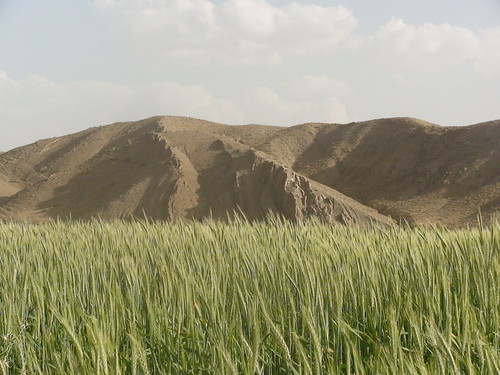Winning The War On Drugs
Posted by Big Gav in afghanistan, canada, fertiliser, heroin, potash corp, wheat
Frogblog points to an article in The Guardian, noting a strange side effect of the rise in fertiliser (and thus grain) prices - wheat is now a more competitive crop in Afghanistan against opium.
It seems some combination of the price falling out of the heroin market and rapidly rising world food prices means that Afghan farmer are converting from poppy growing to wheat. Poor old United States with its multi billion dollar ‘war on drugs’ - all it had to do the whole time was raise the price of food!Haji Dawood, a farmer who used to cultivate poppy but now farms wheat in the Daman district, near Kandahar in the south, said his family had benefited from the wheat boom. “It’s the first time since I planted wheat that I can afford to feed my family … it’s going well because the price of opium has come down, and the price for my wheat has gone up. Each new season we get more money from the crop than from the previous one,” he said.
The ironic thing here is that grain and wheat farms here are either converting to dairy or growing crop to feed dairy cows. If we were in the same situation as Afghanistan we’d now have cows eating opium poppies as feed stock.
Following on from my Potash Potluck post during the week, I found this article at Grist interesting - The Saudi Arabia of fertiliser - which looks at the strong position Potash Corp has in all 3 major industrial agriculture nutrients.
Industrial agriculture currently stands as humanity's big plan for "feeding the world" as global population moves toward 10 billion and the earth warms. Increasingly, as oil supplies tighten and prices rise, we're looking to industrial ag to fill our gas tanks, too.
Unhappily, this relatively new form of farming relies utterly on three elements -- two mined (potassium and phosphorus) and one synthesized from natural gas (nitrogen) -- to maintain the productivity of soil.
In other words, unless we quickly move toward other agriculture models, we're likely to see increased geopolitical competition for these fertilizer resources, outsized power for the entities that control them -- and diminishing efforts to minimize the ecological effects of extracting them.
I've written before about Mosaic, the world's largest phosphorus supplier, and the devastations of its Florida mining operations. Two-thirds owned by agribusiness conglomerate Cargill, Mosaic has seen its share price rise seven-fold since the fall of 2006 (roughly when corn prices began to jump).
Now let's look at Canada's Potash Corporation of Saskatchewan, whose shareholders, like Mosaic's, have enjoyed an ecstatic run of late. The company so dominates potash (potassium) production that one stock analyst has hailed it as "the Saudi Arabia of Fertilizer."
The analyst, Ben Johnson of Morningstar, has this to say about Potash's market position:PCS is the world's largest potash producer, with 22% of world capacity. ... PCS is also the world's second-largest nitrogen producer by volume (with 2% of world capacity). ... PCS is the world's third-largest phosphate producer (with 6% of world capacity).
Wow, so in the big-three macronutrients, the company ranks one, two, and three. But it's the company's position in the potash market that really has investors licking their chops. Get this:I feel [an] apt analogy would be to call [Potash Corporation of Saskatchewan] the Saudi Arabia of the "other OPEC" -- Organization of Potash Exporting Countries! ... PCS owns 22% of the world's potash production capacity, while Saudi Arabia accounts for roughly 13% of global oil production. Both enjoy low-cost positions in their particular markets, thanks to scale and the attractive natural resources they control. The Middle East has more than 60% of the world's proven oil reserves, while Canada sits on about 57% of the world's potash reserve base, according to the U.S. Geological Survey.
The analyst says that the company's dominant potash position has made it extraordinarily profitable as fertilizer prices have surged recently, pushed up by the biofuel boom and rising demand from Brazil and China. He writes that "gross profit per metric ton of potash sold nearly doubled to $97 in 2007 from $51 in 2004." He adds:And there will be more to come. Given recent price announcements for potash, average selling prices will easily double from 2007 levels in the coming quarters.
Similar trends are playing out with nitrogen and phosphorous:Unit gross profit in nitrogen has more than doubled from $45 to $94 over this same span, and phosphate unit margins have compounded an eye-popping 14 times from $4 in 2004 to $57 in 2007.
Several questions arise here. Is it really sustainable to "feed the world" -- much less move its cars -- using technologies that require ravenous doses of finite resources?






